The cryptocurrency landscape is rapidly evolving, with the global market size projected to continue its upward trajectory. As the industry expands, the importance of reliable and feature-rich trading platforms becomes increasingly evident.
In 2025, investors have access to a wide range of fintech applications designed to cater to diverse trading needs, from beginner-friendly interfaces to advanced tools for seasoned traders. For those looking to navigate this complex world, a comprehensive guide to the top cryptocurrency exchanges is essential.
Key Takeaways
- Overview of top fintech applications for cryptocurrency trading
- Comparison of essential features across leading crypto trading platforms
- Analysis of security measures and fee structures
- Evaluation of user experience and mobile functionality
- Insights into the strengths and weaknesses of various cryptocurrency exchanges
The Evolution of Cryptocurrency Trading Platforms

The cryptocurrency trading landscape has undergone significant transformations since 2020, evolving into sophisticated financial technology ecosystems. This evolution has been driven by various factors, including regulatory developments, technological advancements, and changing user demands.
How Crypto Trading Has Changed Since 2020
Early crypto exchanges focused primarily on basic buy/sell functionality. However, modern platforms have integrated advanced trading tools, educational resources, and diverse asset offerings. The COVID-19 pandemic accelerated the adoption of digital financial services, driving growth in cryptocurrency trading platform usage and innovation. As a result, the industry has seen the emergence of more secure and transparent trading environments.
Regulatory compliance has played a crucial role in shaping the industry. Increased compliance requirements have led to enhanced security measures and more transparent operations among cryptocurrency exchanges.
Key Innovations in Fintech Apps for 2025
Looking ahead to 2025, fintech apps are expected to incorporate several key innovations. These include AI-powered trading assistants, enhanced security protocols, and seamless integration with traditional financial services. The integration of decentralized finance (DeFi) features within centralized exchanges represents a significant evolutionary development in the cryptocurrency trading ecosystem.
“The future of cryptocurrency trading lies in the integration of advanced technologies and traditional financial systems, creating a more robust and accessible market for users worldwide.”
The industry continues to evolve, with cross-chain compatibility becoming standard in leading platforms. This allows users to trade assets across multiple blockchain networks without complicated processes, further enhancing the trading experience.
What Makes a Great Cryptocurrency Trading App in 2025
The quality of a cryptocurrency trading app in 2025 hinges on several critical elements, including its features, security protocols, and fee transparency. As the cryptocurrency market continues to evolve, users are demanding more sophisticated and secure trading platforms.
Essential Features to Look For
Modern crypto trading platforms must offer a range of essential features to remain competitive. These include real-time market data, customizable trading interfaces, portfolio analytics, and automated trading options. The best apps also provide educational resources to help users make informed trading decisions and integrate with external wallets and financial services.
Security Standards and Protections
Security is paramount in crypto trading apps. Top platforms implement multi-signature authentication, cold storage solutions, and regular security audits to protect user assets. Advanced encryption protocols and biometric verification have become standard, with leading apps offering insurance coverage for digital assets held on their platforms.
Fee Structures Explained
The fees associated with cryptocurrency trading apps vary widely. Considerations include trading fees, deposit/withdrawal costs, and premium feature access. The most transparent platforms provide clear fee schedules and avoid hidden costs, with some offering tiered systems that reward high-volume traders with reduced fees.
Best Overall Cryptocurrency Trading Platforms
As the cryptocurrency market continues to evolve, identifying the best overall cryptocurrency trading platforms becomes increasingly important for both novice and experienced traders.
Coinbase

Overview
Coinbase has been a leader in the cryptocurrency trading space since its founding in 2012. It is known for its user-friendly interface, making it accessible to beginners while still offering advanced features for experienced traders.
With over 280 cryptocurrencies available, Coinbase stands out as a comprehensive trading platform. Its robust security measures, including two-factor authentication and insurance coverage for digital assets, have established it as one of the most trusted exchanges.
Pros
The platform’s intuitive design and extensive cryptocurrency offerings are significant advantages. Coinbase provides a seamless trading experience, catering to a wide range of users.
- Highly user-friendly interface
- Robust security measures
- Wide range of cryptocurrencies available
Cons
Despite its many benefits, Coinbase has some drawbacks. The fee structure can be complex and sometimes confusing for new users. Additionally, accessing human customer support can be challenging.
- Complex fee structure
- Difficulty in accessing human customer support
Key Features
Coinbase offers a variety of features that enhance the trading experience. These include a staking and rewards program, allowing users to earn passive income on their cryptocurrency holdings.
- Staking and rewards program
- Transparent fee display before order execution
- Advanced trading features for experienced users
Crypto.com

Overview
Crypto.com has emerged as a comprehensive trading platform, offering access to over 350 cryptocurrencies. Its mobile-first approach ensures that users can trade efficiently on-the-go without sacrificing functionality.
The platform is designed to cater to both beginners and advanced traders, with features such as derivatives trading options and detailed market analysis tools.
Pros
Crypto.com’s competitive fee structure and extensive cryptocurrency offerings make it an attractive option for traders. The platform’s educational resources are also beneficial for beginners.
- Competitive fee structure
- Access to over 350 cryptocurrencies
- Educational resources for beginners
Cons
While Crypto.com offers many advantages, users should be aware of potentially high withdrawal minimums for certain cryptocurrencies.
- High withdrawal minimums for some cryptocurrencies
Key Features
Crypto.com’s feature set includes customizable alerts and detailed market analysis tools, enhancing the trading experience for advanced users.
- Derivatives trading options
- Customizable alerts
- Detailed market analysis tools
Best Fintech Apps for Cryptocurrency Trading in 2025 for Beginners
As cryptocurrency continues to gain traction, beginners need reliable and easy-to-use trading platforms. The right fintech app can make a significant difference in navigating the complex world of cryptocurrency trading.
Robinhood Crypto
Overview
Robinhood Crypto has evolved significantly since its launch, becoming a solid choice for beginners who want to trade cryptocurrencies alongside stocks within a single app. It offers commission-free trading across 25+ digital assets.

Pros
Commission-free trading and a user-friendly interface make Robinhood Crypto accessible to new investors. The app also offers staking rewards for Solana (SOL) and Ethereum (ETH), introducing beginners to passive income generation.
Cons
One significant limitation is the inability to trade crypto-to-crypto directly within the main app, requiring users to set up a separate Robinhood Wallet for this functionality.
Key Features
Robinhood Crypto’s key features include commission-free trading, a simple and intuitive mobile app, and staking rewards for certain cryptocurrencies. These features cater to beginners looking for an easy entry into cryptocurrency trading.
Fidelity Crypto
Overview
Fidelity Crypto represents a traditional finance approach to cryptocurrency trading, offering a limited selection of cryptocurrencies (Bitcoin, Ethereum, and Litecoin) with a straightforward 1% spread fee structure. It’s ideal for existing Fidelity customers seeking basic cryptocurrency exposure.
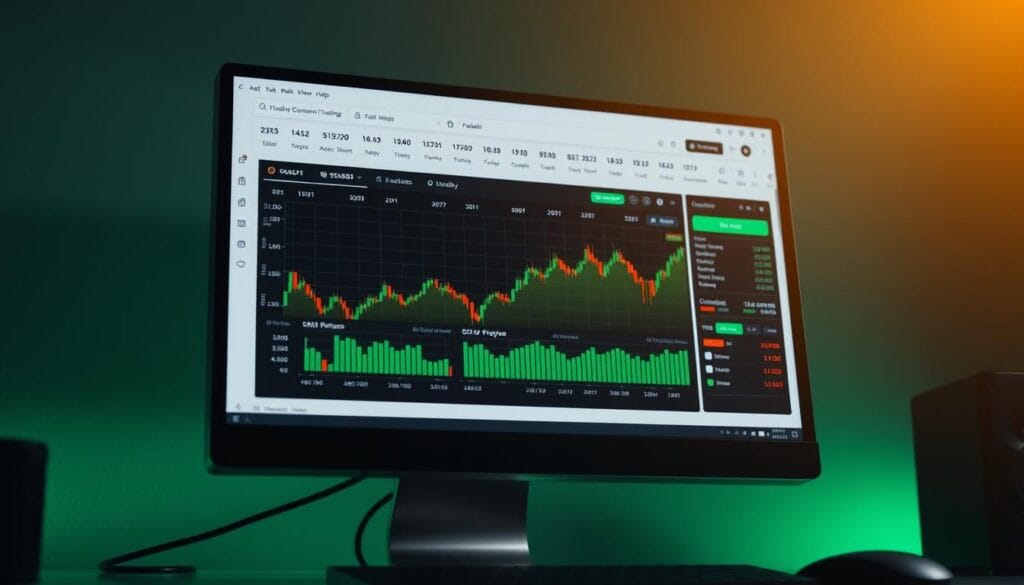
Pros
Fidelity’s established reputation for security and compliance provides reassurance to risk-averse beginners. The platform’s integration with Fidelity’s brokerage services allows for a seamless experience for existing customers.
Cons
The absence of staking programs and advanced trading features makes Fidelity Crypto more suitable for buy-and-hold investors rather than active traders. Additionally, geographic limitations restrict its availability to 38 states.
Key Features
Fidelity Crypto’s key features include a simple fee structure, integration with Fidelity’s brokerage services, and a secure trading environment. These features are particularly beneficial for beginners who value security and ease of use.
Best for Advanced Traders
The year 2025 is shaping up to be a pivotal moment for advanced cryptocurrency traders, with platforms like Kraken and Gemini ActiveTrader leading the charge.
Kraken
Overview
Kraken has established itself as a premier platform for advanced cryptocurrency traders, offering access to over 350 digital assets and approximately 65 crypto-to-crypto trading pairs. Its competitive fee structure, ranging from 0.16% to 5%, becomes even more attractive when using Kraken Pro, where rates drop to some of the lowest in the industry.
Pros
Low Fees for Advanced Trading: Kraken Pro offers some of the lowest fees in the industry, making it ideal for high-volume traders.
Large Selection of Cryptocurrencies: With over 350 digital assets available, Kraken provides a vast marketplace for traders.
Cons
Geographic Limitations: Kraken is not available for users in New York or Washington, which may restrict access for some users.
Key Features
Advanced order types, detailed charting tools, and comprehensive market analysis features provide sophisticated traders with the technical capabilities needed for complex trading strategies. Kraken’s staking program supports 24 assets, including Ethereum, Solana, Polkadot, and Cardano, though availability is limited to 37 U.S. states through the Kraken Pro offering.

Gemini ActiveTrader
Overview
Gemini’s ActiveTrader platform caters specifically to advanced cryptocurrency traders, featuring microsecond execution speeds and sophisticated trading tools that rival professional trading terminals. The platform provides access to crypto derivatives and popular trading pairs, though its selection of 80+ cryptocurrencies is more limited compared to Kraken.
Pros
Exceptional Security Infrastructure: Gemini has demonstrated institutional reliability by returning 100% of customer assets following the FTX collapse, rebuilding trust in its staking program.
Sophisticated Trading Tools: Gemini ActiveTrader offers advanced trading tools and microsecond execution speeds, making it suitable for complex trading strategies.
Cons
Limited Cryptocurrency Selection: With around 80+ cryptocurrencies available, Gemini’s offering is not as extensive as some competitors.
Key Features
Gemini’s fee structure positions it in the mid-range for advanced trading platforms, with costs potentially offset by the platform’s exceptional security infrastructure. The staking program now supports Polygon, Ethereum, and Solana, further enhancing its appeal to advanced traders.
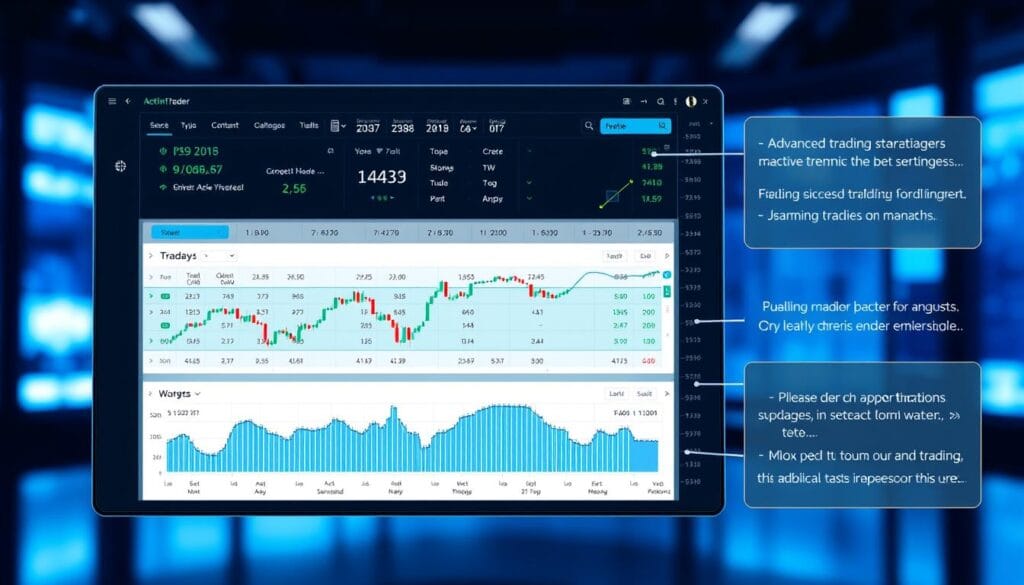
For those looking to diversify their trading portfolio, exploring top commodity trading platforms can provide additional insights and opportunities.
Best for Low Fees
Low fees are a crucial aspect of the cryptocurrency trading experience, influencing traders’ choices of platforms. When selecting a cryptocurrency exchange, users must consider not only the fees but also the overall value proposition offered by the platform.
Kraken’s Fee Structure
Overview
Kraken is renowned for its competitive fee structure, making it a preferred choice for many cryptocurrency traders. The platform offers a tiered fee system based on trading volume, which benefits high-volume traders with lower rates.
Fee Breakdown
Kraken’s maker fees range from 0.16% to 0.40%, while taker fees are between 0.26% and 0.50% for most users. The platform’s fee structure is designed to reward active traders, with fees decreasing as trading volume increases.
Comparison with Competitors
When compared to other cryptocurrency exchanges, Kraken’s fees are consistently lower across most trading pairs, especially for users who qualify for higher volume tiers or use the Kraken Pro platform. Additionally, Kraken offers reduced fees for users who stake the platform’s native token, providing an additional pathway to minimize trading costs.
InteractiveBrokers Crypto
Overview
InteractiveBrokers has entered the cryptocurrency market with a straightforward fee structure capped at 1% per transaction. The platform’s pricing model is transparent and predictable, making it attractive to users who value simplicity.
Fee Breakdown
InteractiveBrokers offers a competitive fee structure for cryptocurrency trading, although it is limited to 11 cryptocurrencies. The platform’s integration of cryptocurrency trading within its established brokerage services allows users to manage diverse asset classes under a single fee structure.
Comparison with Competitors
While InteractiveBrokers offers competitive rates for basic trading, the inability to trade crypto-to-crypto pairs directly may increase overall costs for users requiring this functionality. Nonetheless, the platform’s fee structure is appealing to users seeking a unified platform for managing various assets.
Both Kraken and InteractiveBrokers demonstrate that fee optimization is a critical differentiator in the cryptocurrency exchange market. Users seeking the lowest fees should consider their specific trading patterns and preferences when choosing between these platforms.
Best for Security and Compliance
As cryptocurrency trading continues to grow, the importance of robust security measures cannot be overstated. Traders are increasingly looking for platforms that not only offer advanced trading features but also prioritize the security of their assets.
Gemini’s Security Infrastructure
Overview
Gemini has established itself as an industry leader in cryptocurrency security, implementing a sophisticated multi-layered approach to protecting user assets. The exchange employs a combination of hot and cold storage solutions, with the majority of customer assets stored in air-gapped cold wallets.
Security Features
Gemini’s security infrastructure includes hardware security modules (HSMs) that manage digital keys with FIPS 140-2 Level 3 certification, providing institutional-grade protection for cryptographic operations. The platform undergoes regular SOC1 Type 2 and SOC2 Type 2 examinations, verifying the effectiveness of its security controls.
Regulatory Compliance
As a New York trust company, Gemini operates under the direct oversight of the New York State Department of Financial Services, subjecting it to some of the most rigorous regulatory requirements in the cryptocurrency industry.

Coinbase Security Measures
Overview
Coinbase has developed one of the most comprehensive security frameworks in the cryptocurrency industry, protecting over $250 billion in assets through a defense-in-depth strategy. The exchange stores approximately 98% of customer funds in cold storage.
Security Features
Coinbase implements strict access controls, including mandatory two-factor authentication, biometric verification options, and sophisticated fraud detection systems. The remaining hot wallet funds are fully insured against security breaches.
Regulatory Compliance
As a publicly-traded company, Coinbase operates under extensive regulatory scrutiny, maintaining licenses in multiple jurisdictions and complying with anti-money laundering (AML) and know-your-customer (KYC) requirements. For more information on managing finances securely, you can explore top mobile banking apps for 2025 on our site.
Best for Cryptocurrency Selection
For traders seeking diverse cryptocurrency portfolios, selecting the right exchange is crucial. The best exchanges offer a wide range of digital assets, enabling traders to diversify their investments effectively.
BitMart
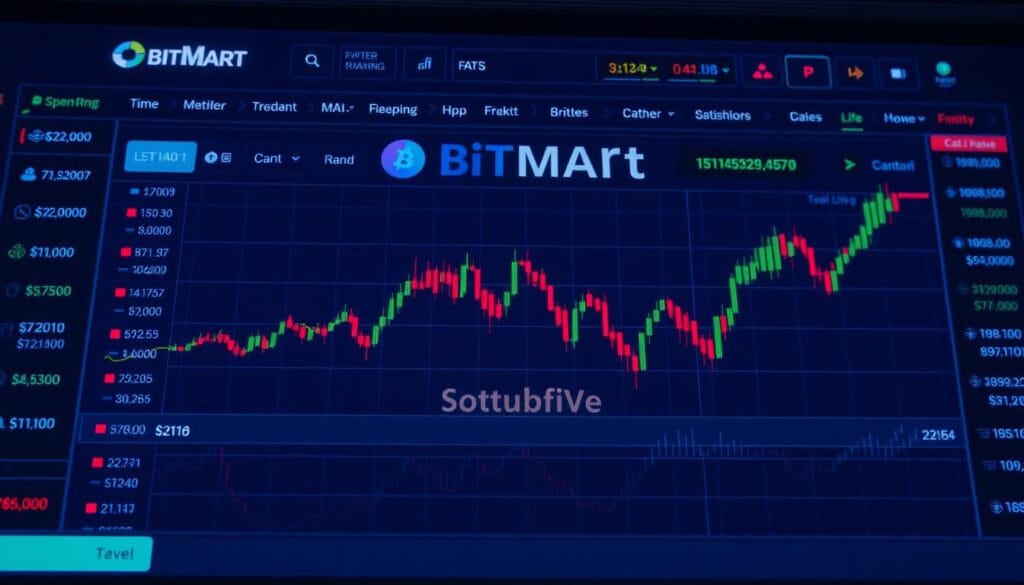
Overview
BitMart stands out in the cryptocurrency exchange landscape by offering access to over 1,700 tradable digital assets. Founded in 2017 and headquartered in New York, it is particularly noted for its extensive altcoin offerings.
Available Cryptocurrencies
BitMart provides traders with a vast array of cryptocurrencies, including both established coins like Bitcoin and Ethereum, as well as emerging altcoins and tokens that may be difficult to find on other major exchanges.
Trading Features
The platform offers copy trading functionality, allowing users to automatically replicate the trading strategies of successful traders. BitMart’s tiered trading fees range from 0.04% to 0.6% for makers and 0.045% to 0.6% for takers, contingent on trading volume and user classification.
Uphold

Overview
Uphold is another strong option for traders seeking diverse asset exposure, providing access to over 300 cryptocurrencies alongside tens of thousands of trading pairs.
Available Cryptocurrencies
The platform supports a broad range of digital assets, offering traders the opportunity to diversify their portfolios with various cryptocurrencies.
Trading Features
Uphold’s staking program supports approximately 20 cryptocurrencies with competitive yield rates, creating opportunities for passive income generation. The platform also offers multiple wallet options, including hot and cold storage solutions.
Best Mobile Trading Experience
As cryptocurrency trading continues to grow, the importance of a seamless mobile trading experience cannot be overstated.
Crypto.com Mobile App
Overview
Crypto.com has developed one of the most comprehensive mobile trading experiences in the cryptocurrency industry, offering access to over 350 digital assets through an intuitive and feature-rich application.
Mobile Features
The mobile platform maintains full functionality compared to its desktop counterpart, allowing users to execute advanced trading strategies, set customized alerts, and manage watchlists entirely from their smartphones.
Key Features: Biometric authentication, transaction PINs, and two-factor authentication enhance security without compromising user experience.
User Experience
User reviews consistently praise the app’s intuitive interface and comprehensive feature set, though some note frustration with frequent update requirements.
Robinhood Mobile Experience
Overview
Robinhood’s mobile cryptocurrency trading experience emphasizes simplicity and accessibility, leveraging the company’s expertise in creating user-friendly investment interfaces for traditional securities.

Mobile Features
The application offers commission-free trading across 25+ cryptocurrencies, with a streamlined process that allows users to execute trades with minimal steps and complexity.
User Experience
The platform’s mobile experience prioritizes visual clarity and performance optimization, though some users report occasional stability issues during high-volume trading periods.
Both Crypto.com and Robinhood demonstrate the industry’s shift toward mobile-first design philosophies, recognizing that many cryptocurrency traders prefer the flexibility of managing their portfolios from mobile devices rather than desktop platforms.
Best for Bitcoin Trading
In the competitive landscape of cryptocurrency trading, platforms that excel in Bitcoin trading are gaining popularity among traders. Two such platforms are Crypto.com and Coinbase, each offering unique features tailored to Bitcoin traders.
Crypto.com Bitcoin Trading Features
Overview
Crypto.com has established itself as a premier destination for Bitcoin trading, offering a comprehensive suite of features specifically designed for the world’s leading cryptocurrency. The platform provides multiple Bitcoin trading pairs against fiat currencies and other cryptocurrencies, allowing users to easily move between Bitcoin and various other assets without unnecessary conversion steps.
Bitcoin-Specific Features
The platform’s Bitcoin-specific charting tools include specialized technical indicators and historical data visualization that help traders identify potential entry and exit points. Advanced Bitcoin trading options on Crypto.com include futures contracts, perpetual swaps, and margin trading with leverage up to 10x, catering to sophisticated trading strategies.
Trading Options
Crypto.com’s mobile app enables real-time Bitcoin price alerts and automated trading features that allow users to execute strategies even when away from their computers. For those looking to explore more options, you can check out the best crypto trading for a comprehensive comparison.
Coinbase Bitcoin Services
Overview
Coinbase offers one of the most accessible Bitcoin trading experiences, with an intuitive interface designed to make purchasing and selling Bitcoin straightforward for beginners while still providing depth for experienced traders. The platform’s Bitcoin services include educational resources that explain blockchain fundamentals, Bitcoin’s history, and market dynamics to help users make informed trading decisions.
Bitcoin-Specific Features
Coinbase provides institutional-grade security for Bitcoin holdings, with the majority of assets stored in offline cold wallets protected by sophisticated security protocols. The exchange offers multiple order types for Bitcoin trading, including market, limit, and stop orders, allowing traders to implement various strategies based on market conditions.
Trading Options
Both Crypto.com and Coinbase provide Bitcoin staking options, though with different approaches to reward structures and lockup periods that traders should evaluate based on their investment timeframes. For more information on cryptocurrency IRA options, you can explore cryptocurrency IRA options for 2025 to diversify your investments.
Best for Staking and Rewards
As cryptocurrency continues to grow, staking has become an essential aspect for many investors. The best platforms for staking and rewards offer a combination of competitive yields, security, and flexibility.
Uphold Staking Options
Overview
Uphold has established itself as a leader in cryptocurrency staking, offering yield-generating opportunities across approximately 20 digital assets. The platform’s top staking options deliver yields exceeding 15%, outperforming many competing cryptocurrency platforms.
Available Staking Cryptocurrencies
Uphold’s staking program includes a diverse range of cryptocurrencies, providing users with flexibility in their staking strategies. The platform’s multi-wallet system allows users to segregate staked assets from trading funds.
Reward Rates
The reward rates on Uphold vary by cryptocurrency and market conditions. The platform provides detailed transparency regarding staking mechanisms, reward calculations, and risk factors.

Gemini Earn Program
Overview
Gemini’s Earn program has been rebuilt following industry challenges, now offering staking opportunities for Polygon (MATIC), Ethereum (ETH), and Solana (SOL). The platform emphasizes security and regulatory compliance.
Available Staking Cryptocurrencies
Gemini currently offers staking for a select number of cryptocurrencies, with a focus on institutional-grade security protections.
Reward Rates
The reward rates on Gemini vary by cryptocurrency and market conditions, with transparent fee structures that clearly communicate the platform’s share of generated yields.
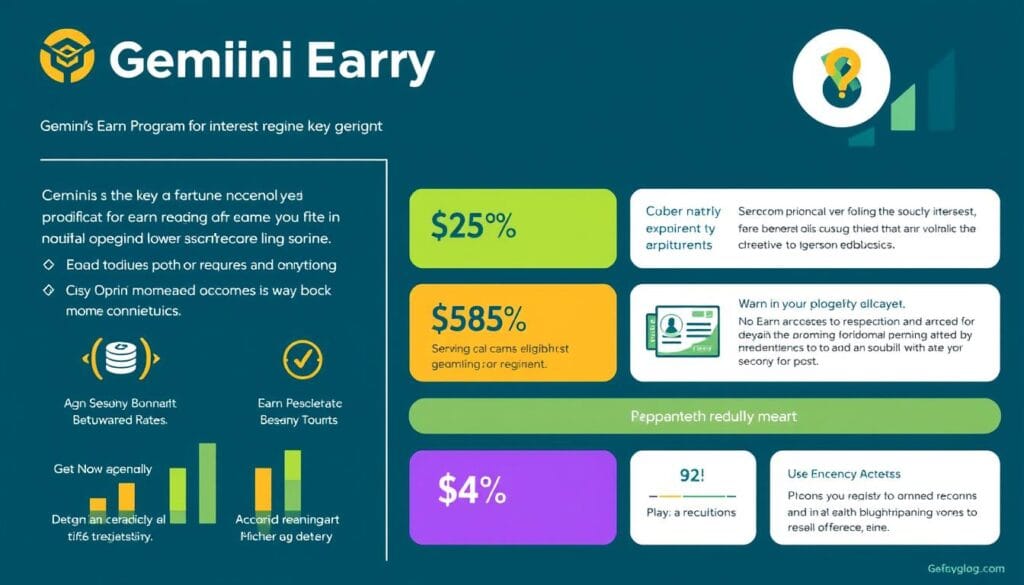
Both Uphold and Gemini provide educational resources to help users understand the technical aspects of staking and the associated risks and rewards.
Best Traditional Brokers Offering Crypto
The integration of cryptocurrency trading within traditional brokerage services is gaining momentum. This development allows investors to manage both traditional investments and cryptocurrencies within a single platform.
Fidelity Crypto Integration
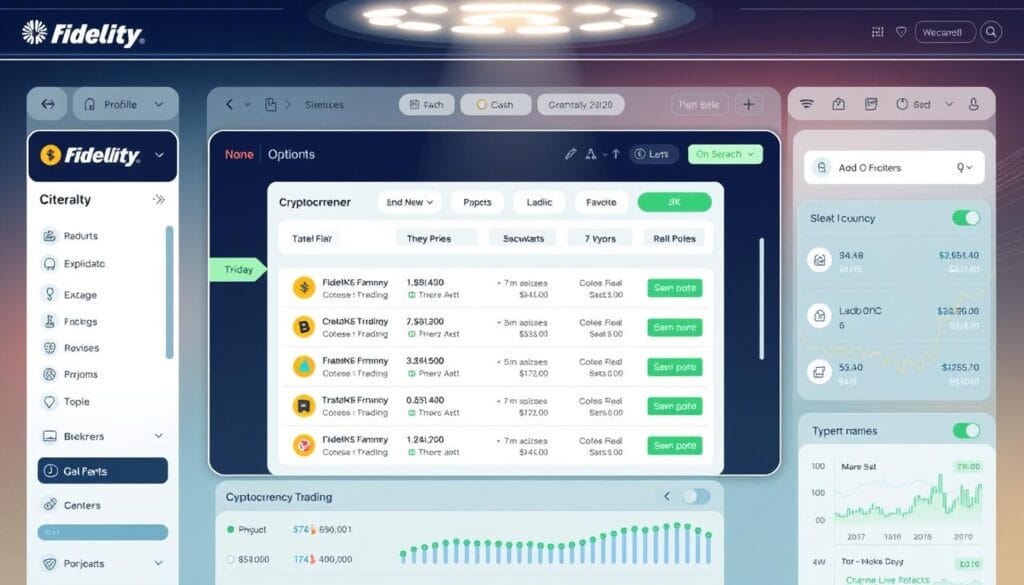
Overview
Fidelity Crypto offers a straightforward way for investors to gain exposure to cryptocurrencies like Bitcoin, Ethereum, and Litecoin. With a simple 1% spread fee, it prioritizes ease of use over comprehensive cryptocurrency offerings.
Integration with Traditional Investments
The platform allows users to view and manage their cryptocurrency holdings alongside traditional investments such as stocks, bonds, and mutual funds, creating a unified portfolio dashboard. This integration leverages Fidelity’s established security infrastructure, providing reassurance to traditional investors.
Limitations
Despite its advantages, Fidelity Crypto is limited by its availability in only 38 states, the absence of staking programs, and the inability to transfer cryptocurrencies to external wallets. These limitations may restrict its appeal to more advanced cryptocurrency traders.
InteractiveBrokers Crypto Platform

Overview
InteractiveBrokers has expanded its sophisticated trading platform to include 11 cryptocurrencies, offering more diverse exposure than Fidelity. The platform applies its reputation for competitive pricing to cryptocurrency trading, with fees capped at 1%.
Integration with Traditional Investments
InteractiveBrokers provides advanced order types and analytical tools for cryptocurrency trading that mirror its equity offerings, creating a familiar environment for experienced traders. This integration allows users to manage both traditional and cryptocurrency investments within a single account.
Limitations
Like Fidelity, InteractiveBrokers does not support crypto-to-crypto trading or external transfers, positioning it primarily as an investment vehicle rather than a functional cryptocurrency platform. This limitation may affect its appeal to traders seeking more advanced cryptocurrency features.
Both Fidelity and InteractiveBrokers demonstrate how traditional financial institutions are selectively adopting cryptocurrency features while maintaining their established business models and regulatory approaches.
How to Choose the Right Cryptocurrency Trading App
The process of selecting a suitable cryptocurrency trading platform involves several key considerations. As the cryptocurrency market continues to evolve, traders must assess their specific needs and preferences to identify the most appropriate trading app.
Assessing Your Trading Needs
Selecting the right cryptocurrency trading app begins with a thorough assessment of your specific trading needs. This includes evaluating your experience level, trading frequency, and investment goals. Beginners should prioritize platforms with intuitive interfaces, comprehensive educational resources, and responsive customer support. In contrast, advanced traders may require more sophisticated charting tools and diverse order types to effectively manage their trades.
Consider the types of cryptocurrencies you plan to trade, as platform offerings can vary significantly. While traditional brokers may offer only a few major coins like Bitcoin and Ethereum, specialized exchanges can provide access to thousands of digital assets. This variation is crucial in determining which platform best suits your investment strategy.
Comparing Fee Structures
Fee structures represent a critical evaluation factor when choosing a cryptocurrency trading app. Significant variations exist across platforms in terms of trading fees, deposit and withdrawal costs, and premium feature access. These differences can substantially impact your investment returns, making it essential to understand the complete cost structure.
When comparing fees, look beyond headline rates to understand the total cost, including spreads, conversion fees, and potential hidden charges. Volume-based fee tiers can benefit active traders, while flat-fee structures may be more advantageous for occasional investors making larger, less frequent transactions.
“The key to maximizing returns in cryptocurrency trading lies in understanding and minimizing the fees associated with your trading activities.”
Evaluating Security Features
Security is a paramount consideration when selecting a cryptocurrency exchange or trading app. Industry best practices include implementing two-factor authentication, storing the majority of assets in cold storage, and conducting regular security audits. Evaluating a platform’s security history, insurance coverage, and regulatory compliance status can provide insights into their commitment to protecting user assets.
Additionally, consider the platform’s wallet integration options and the flexibility to transfer assets to external wallets for enhanced security. The geographic availability of the platform and its features can also be impacted by regulatory restrictions in specific regions.
By carefully assessing your trading needs, comparing fee structures, and evaluating security features, you can make an informed decision when choosing a cryptocurrency trading app that aligns with your investment goals and preferences.
Conclusion
As we navigate the complex landscape of cryptocurrency trading in 2025, it’s clear that the diversity of platform options has never been more pronounced. The crypto market continues to evolve, with exchanges catering to different user needs, from beginners to advanced traders.
The ideal platform choice ultimately depends on individual priorities, trading patterns, and investment goals. For beginners, accessible entry points like Robinhood Crypto and Fidelity Crypto provide a gateway to cryptocurrency markets. Advanced traders benefit from sophisticated platforms like Kraken and Gemini ActiveTrader, which offer institutional-grade tools and competitive fee structures.
Crypto enthusiasts can expect further innovation in trading platforms, with increased competition driving improvements in user experience, security, and fee structures. As the cryptocurrency market continues to mature, the most successful traders will likely utilize multiple exchanges for different purposes, optimizing their investment strategies across various cryptocurrencies.
In conclusion, the crypto trading landscape of 2025 offers a rich array of choices for users, with top exchanges providing robust security measures, diverse cryptocurrency selections, and advanced trading features. As the market evolves, staying informed about the latest developments in crypto and trading platforms will be crucial for making informed investment decisions.

